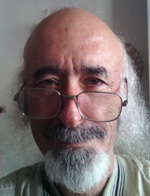By Dan Bloom

CHIAYI CITY, Taiwan — When the Oxford Dictionaries in Britain made a list of new words it was accepting into its chambers for 2017, J.K. Rowling’s ”Harry Potter” novels had its “quidditch term accepted, along with “latte art,” “floordrobe,” “snoozefest” and ”cli-fi.” Words matter, and the editors of this British dictionary in London like to bring in new words every year.
If learning these new words leaves you a little tired, perk yourself up with a latte, perhaps even bearing illustrations? Such warming images are called “latte art” and are created by carefully pouring steamed milk onto the drink’s surface. Should you desire a more refreshing, and less aesthetically pleasing, caffeine boost, perhaps you’d find an “Arnold Palmer” more appealing: this refers to a drink of iced tea mixed with lemonade, and is named after the late American golfer.
International fans of football (or soccer, to those reading this in North America) will be glad to hear that the sport has scored two new words in the dictionary’s latest update: “vanishing spray” and “rabona.” Vanishing spray is a type of spray used to make a temporary — and vanishing — marker on the field, particularly in preparation for a free kick. The word rabona refers to a move in football, in which “a player strikes the ball with their kicking leg crossed behind the other leg.” Got that?
This football word has made its way into English from Argentinian Spanish, where it appears in the phrases ”hacerse la rabona” and ”hacer la rabona” meaning
to play truant.” Its connection to football is believed to arise from the phrase’s use in the Argentinian football magazine El Grafico in 1948, in which a cartoon depicting the player Ricardo Infante (who had recently performed what would later be termed a rabona) was captioned ”el infante que se hizo la rabona” — ”the child who plays truant.” However, this anecdote remains unconfirmed, so the truth of the rabona’s origins is still a bit of a mystery.
Another contribution from the sports arena is a word referring to a game played with broomsticks firmly clamped between legs: “quidditch.” Once a fantasy sport played up in the air in the Harry Potter books, quidditch has been translated for the Muggle world with feet planted on the ground, and hopefully with fewer bones lost.
Showmance? This new word refers to a romantic relationship between movie and television show co-stars, but often a mere showmance contrived for the sake of publicity.
Another term that made the cut this year is “grimdark,” a word used to describe a genre of fiction “characterized by disturbing, violent, or bleak subject matter and a dystopian setting.” Such works often take place at or after “TEOTWAWKI” (short for “the end of the world as we know it”). A bit grim, a bit dark.
Though perhaps not as bleak as a grimdark novel, works of cli-fi are quite serious. The cli-fi term, the dictionary editors say, is modeled after its hypernym sci-fi.
Weird weather has given us two new words, too: “firenado” and “megaquake.” Then there’s a new term dubbed “seasteading” (via homesteading) which means establishing permanent settlements at sea.
A rather sad word admitted into the Oxford dictionary this year is “denisovan,” which stands for those species that have disappeared from the Earth now forever. Apparently, this was the name of an extinct species of human, whose remains were discovered in 2008. The species was named after the cave where the discovery took place — the Denisova Cave in the Altai Mountains of south-western Siberia.
The above words were added to Oxford Dictionaries, which focuses on current English, and not the Oxford English Dictionary, which is a historical dictionary that contains only words that are considered ”core” English language. Many of those words have existed for over 1,000 years.
This reporter was able to get a comment from the Oxford English Dictionary as an update: In an emailed statement Oxford Dictionaries explained, ”Our dictionaries aim to describe how language is used, rather than prescribe how it should be used! We use various methods to track and monitor real language use both online and in print, so once there is sufficient evidence that a word is being used by a wide range of sources, it’ll be on our radar.”
*
Bloom is a freelance writer based in Chiayi City, Taiwan.